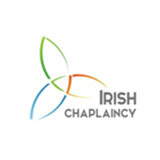Sitting Where They Sit
August 31, 2017 General
60 years on at the Irish Chaplaincy
This year the Irish Chaplaincy celebrates its 60th birthday. Set up by the Irish bishops as the Irish Emigrant Chaplaincy in a very different social, political and cultural climate, it continues today to provide an outreach service to some of the most vulnerable Irish people in Britain.
Since 1957, successive teams of priests, religious and lay people have worked tirelessly over the decades to fulfil the challenge of the Gospel by walking alongside and being a voice for the thousands of Irish emigrants who flocked in large numbers to this country in search of a better life. The story of their labours and the problems and prejudices they experienced are well documented in Patricia Kennedy's book, Welcoming the Stranger: Irish Migrant Welfare in Britain since 1957 (Irish Academic Press, 2015).
The roll call of these dedicated people throughout the decades is a long and distinguished one and this is not the place to single out individuals for special mention. Suffice it to say that the continued success of the Chaplaincy owes everything to their pioneering work at a time when it was anything but "cool" to be Irish in Britain.
When I joined the Chaplaincy team in the early 1990's, there were about ten diocesan priests helping with housing , jobs, and welfare issues in Camden, Hammersmith, Lewisham and other parts of London.
Since then the map has changed somewhat in tandem with population demographics and the issues now affecting Irish people. Today, the Chaplaincy provides an outreach service to three main groups: prisoners, Travellers and Elderly Irish people. From time to time we are asked why we work with these groups when there are so many secular agencies available. The question inevitably leads to others about the nature of the service we provide and how it differs from that of other agencies engaged in similar work. Such questioning can prompt a useful and timely reflection on the motivation and spiritual roots for our work.
One place where an answer can be found is in the Old Testament Book of the Prophet Ezekiel. That Book quotes the prophet as saying: "I sat where they sat." The line refers to the Babylonian Captivity (Exile) experienced by the Chosen People during one of the most traumatic episodes of their history.
The prophet believed that the best way he could help people was by being with them and sharing in some small way their sense of desolation and near despair. In many ways it is an accurate description of our outreach work in the Chaplaincy serving the needs of three of the most vulnerable groups in our Irish community.
Sitting where they sit - that's what the Irish Chaplaincy has been doing for sixty years. Visiting someone in prison, apart from being one of the few things Jesus said that leads to salvation, is good in itself. Just being there for someone, offering them some practical help, a word of hope and encouragement, can make such a difference to the prisoner.
Similarly, with older people, especially those living alone in squalid conditions, bereft of family and social support, leading hidden lives of quiet desperation; what a difference it can be for them just to know that there are people who value them and are there to help them. And Travellers, a much-maligned and misunderstood group, often described as the last socially acceptable prejudice, whose culture and way of life need to be understood and valued. Sitting where they sit is about exercising compassion and mercy. And mention of mercy brings to mind Portia's soliloquy in The Merchant of Venice about the quality of mercy being twice blessed - blessing the one who gives and the one who receives.
This quiet, often hidden work of simply being with someone, listening to their story, is greatly understated but just as important as anything more spectacular. Indeed, I sometimes think that the most important miracles Jesus worked were not necessarily the memorable ones recorded in the Gospels like restoring sight, healing the lame, even raising the dead, but rather the unrecorded words of encouragement and hope he must have spoken to those he met along the dusty roads of Galilee.
Comments like: your life doesn't have to be like this; it can and should be better; have my outlook, my views and values, and you'll see how rich and meaningful it can be. I think this is ultimately what we are called to do in life: to help others on their journey to find their rightful place in life's rich tapestry. There can surely be no greater calling. It's what Dorothy Day called the Call of Service, a call towards others - heart, mind and soul. As always, it takes a poet to express it best. And so I always bear the cup If, haply, mine may be the drop Some pilgrim thirst to slake. (Emily Dickinson, 1830-1886) A fitting epitaph for the work of those Chaplaincy members who have worked - and continue to work - on behalf of the most vulnerable Irish people in Britain.
The Irish Chaplaincy will celebrate 60 years on Sunday, 24th September 2017, at 12.30pm with Mass and a Reception at the Sacred Heart Church, Kilburn, London. Find out more about the Irish Chaplaincy at
Fr Gerry McFlynn, Priest of the Down & Connor Diocese and Project Manager of the Irish Council for Prisoners Overseas, London.

